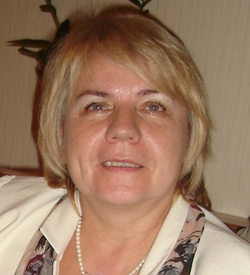Visegrád Group countries contribution to the development of the European Reference Network on Rare Neurological Diseases
 The aim of the meeting of the representatives of the Visegrád countries, i.e. Czech Republic, Slovakia, Hungary and Poland is to establish close cooperation between specialists keeping the existing networks of patients with rare neurological disorders in Europe and worldwide. Building such networks allows specialists to conduct research and apply the findings to the actual treatment of neurological patients. The knowledge accumulated in this way helps to develop centres of reference focusing on research, treatment and care.
The aim of the meeting of the representatives of the Visegrád countries, i.e. Czech Republic, Slovakia, Hungary and Poland is to establish close cooperation between specialists keeping the existing networks of patients with rare neurological disorders in Europe and worldwide. Building such networks allows specialists to conduct research and apply the findings to the actual treatment of neurological patients. The knowledge accumulated in this way helps to develop centres of reference focusing on research, treatment and care.
Joining the network of rare neurological disorders patients from the Visegrád Group countries is vitally important to them. Collaboration between healthcare professionals specialising in rare neurological disorders and representatives of social networks of patients creates a great potential for a significant improvement of the treatment and care standards.
Rare neurological disorders are extremely uncommon in the general population; only 2-5 out of every 10,000 persons suffer from such disorders. Compared to other medical conditions, it seems to be a very insignificant figure, which is exactly why collaboration in this area is so crucial. International cooperation, guided by the underlying principle that foregrounds the patient’s well-being as a top priority, will ensure that patients from the Visegrád countries will have equal access to treatment and care, and will also be conducive to the improvement of healthcare standards.
The Polish Huntington’s Disease Association is particularly interested in trying to improve the situation of patients suffering from Huntington’s disease, one of the rare neurological disorders.
Poland is one of the European Union countries which are yet to establish and implement a nationwide strategy for the treatment of rare neurological disorders.
A National Scheme for the Treatment of Rare Neurological Disorders has been laid out, but it has not been approved and implemented yet. Since 2012, the draft scheme has been under analysis and research is still being conducted.
To realise its statutory aim of providing support for Huntington's disease patients, the Polish Huntington’s Disease Association has joined in the international collaborative efforts to give such patients easier access to diagnosis and treatment.
Danuta Lis, Polska
Visegrad countries contribution to European rare neurological disorders network: project description
 Doing research in rare diseases is always a challenge due to the fact that collection of a large enough cohort of patients to conduct significant studies was time consuming and often impossible to be done by one scientist at one study site. At a European level, the idea of networking in rare diseases research to achieve access to larger numbers of patients with rare diseases faster has been well developed. This idea was applied in several rare diseases and bring tremendous acceleration in rare diseases research. An example is Huntington’s disease where development of European Huntington’s Disease Network conducting REGISTRY cohort study results in logarithmic increase of research and published papers. Idea is to build a network of Study Sites interested in research in the same field. All Study Sites entered into the network collect patients’ research records and store these records together making records available for all interested scientists. Certainly stored records are anonymized.
Doing research in rare diseases is always a challenge due to the fact that collection of a large enough cohort of patients to conduct significant studies was time consuming and often impossible to be done by one scientist at one study site. At a European level, the idea of networking in rare diseases research to achieve access to larger numbers of patients with rare diseases faster has been well developed. This idea was applied in several rare diseases and bring tremendous acceleration in rare diseases research. An example is Huntington’s disease where development of European Huntington’s Disease Network conducting REGISTRY cohort study results in logarithmic increase of research and published papers. Idea is to build a network of Study Sites interested in research in the same field. All Study Sites entered into the network collect patients’ research records and store these records together making records available for all interested scientists. Certainly stored records are anonymized.
This idea gives a background for our efforts to build a network for hyperkinetic - not diagnosed movement disorders across Europe. It is a great opportunity for the Visegrad country partners to contribute and develop the network first in Europe and then in the World. Currently we have site candidates from Poland, Czech Republic, Slovakia and Hungary that collect data from patients with such diseases who would like to join the network. We have also a potential IT platform for such a cohort study.
As diseases that we would like to explore are often not fully diagnosed and usually have genetic background we intend to apply genome sequencing method as a research tool available for our network and here we have candidate as well. This is very important contribution of Visegrad countries to the rare neurological disorders network.
At the current stage it is very important to have a meeting together with all interested parties to exchange information and discuss all issues crucial to such network development and collaboration. It will also allow an estimation of the capability of particular Study Sites and achieve a clear plan for collaboration, development and potential financial support for the project.
Such a contribution of Visegrad countries to the new plan for European Reference Networks to cover groups of diseases (rare neurological disorders in this case) will allow the promotion of our countries in Europe and the World and lead to an improved standard of care for patients at all Centre’s. It will allow the development of civil society of researchers, MDs, patients and their families involved in this project for many years because diagnosis of diseases will follow our efforts to develop proper treatment and care for these patients. Media coverage planned should help to develop this idea and encourage other Study Sites and patients to join the network that will arise.
Daniel Zielonka, Polska
 POLISH HUNTINGTON’S DISEASE ASSOCIATION
POLISH HUNTINGTON’S DISEASE ASSOCIATION
 INTERNATIONAL VISEGRAD FUND
INTERNATIONAL VISEGRAD FUND 

 The aim of the meeting of the representatives of the Visegrád countries, i.e. Czech Republic, Slovakia, Hungary and Poland is to establish close cooperation between specialists keeping the existing networks of patients with rare neurological disorders in Europe and worldwide. Building such networks allows specialists to conduct research and apply the findings to the actual treatment of neurological patients. The knowledge accumulated in this way helps to develop centres of reference focusing on research, treatment and care.
The aim of the meeting of the representatives of the Visegrád countries, i.e. Czech Republic, Slovakia, Hungary and Poland is to establish close cooperation between specialists keeping the existing networks of patients with rare neurological disorders in Europe and worldwide. Building such networks allows specialists to conduct research and apply the findings to the actual treatment of neurological patients. The knowledge accumulated in this way helps to develop centres of reference focusing on research, treatment and care. Doing research in rare diseases is always a challenge due to the fact that collection of a large enough cohort of patients to conduct significant studies was time consuming and often impossible to be done by one scientist at one study site. At a European level, the idea of networking in rare diseases research to achieve access to larger numbers of patients with rare diseases faster has been well developed. This idea was applied in several rare diseases and bring tremendous acceleration in rare diseases research. An example is Huntington’s disease where development of European Huntington’s Disease Network conducting REGISTRY cohort study results in logarithmic increase of research and published papers. Idea is to build a network of Study Sites interested in research in the same field. All Study Sites entered into the network collect patients’ research records and store these records together making records available for all interested scientists. Certainly stored records are anonymized.
Doing research in rare diseases is always a challenge due to the fact that collection of a large enough cohort of patients to conduct significant studies was time consuming and often impossible to be done by one scientist at one study site. At a European level, the idea of networking in rare diseases research to achieve access to larger numbers of patients with rare diseases faster has been well developed. This idea was applied in several rare diseases and bring tremendous acceleration in rare diseases research. An example is Huntington’s disease where development of European Huntington’s Disease Network conducting REGISTRY cohort study results in logarithmic increase of research and published papers. Idea is to build a network of Study Sites interested in research in the same field. All Study Sites entered into the network collect patients’ research records and store these records together making records available for all interested scientists. Certainly stored records are anonymized.